The 5 Essential Sports Supplements
![]()
As a physique contest prep coach and personal trainer, I get asked all the time, “What sports supplements should I take?” If I know nothing about you or your goals, I can’t answer the question. But I can say with certainty there are a few supplements that every athlete should consider, because they work. Check out the video above to learn how to incorporate supplements into your diet.
1. Multivitamin
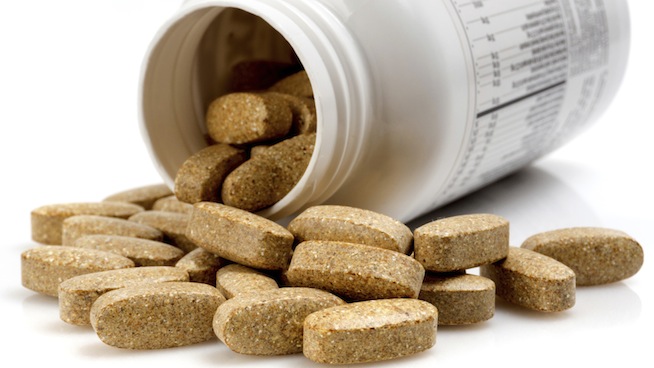
How many people can you name who eat such a diverse diet that they cover the entire color spectrum with their vegetables? I’ll be the first to admit that I don’t. It is incredibly difficult to obtain all the necessary micronutrients through eating alone. I recommend taking a multivitamin, even if you think you don’t need one, to make sure you’re covering all your bases.
RELATED: Maximize Your Athletic Performance With Multivitamins
2. Fish Oils
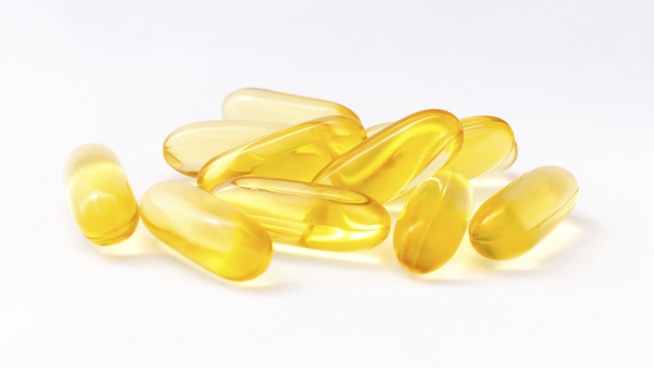
Fish oil can increase fat burning, reduce markers of inflammation, decrease cortisol levels (stress hormone) and improve body composition. In a study published in the Journal of the International Society of Sports Nutrition, researchers found that subjects who supplemented with fish oil reduced their body fat and increased lean mass. The researchers posited that fish oil suppressed fat-promoting genes and increased lean tissue by blocking the catabolic effects of cortisol. Subjects supplemented with 4 grams of fish oil per day for at total of 1,600 mg of EPA and 800 mg of DHA. Unless you consume fatty fish at least twice a week, it’s a good idea to supplement with 2 to 4 grams per day in divided doses.
3. Creatine Monohydrate
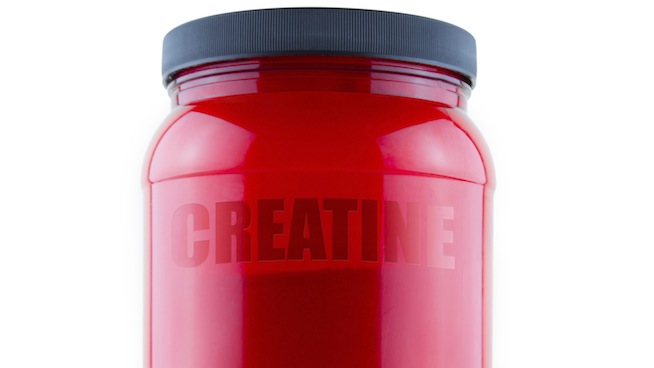
Creatine monohydrate has been on the market for decades because it works. You don’t need to spend $50 or more on creatine HCL or other buffered forms, because they won’t do a better job than the $10 monohydrate, which still does the trick.
Learn more creatine myths.
Dosing protocol for creatine monohydrate has two variations. You can take a loading dose of 0.3 grams/kg/day for three days followed by a 3 gram/day maintenance dose for four weeks on followed by four weeks off. Or you can take 3-5 grams with your post-workout shake only on workout days without taking off periods.
4. Whey Protein
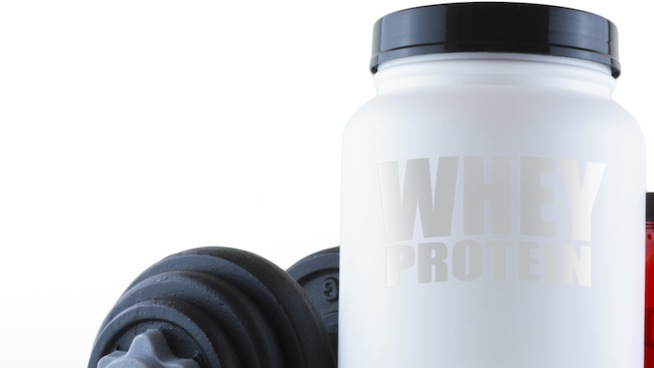
Whey is the living legend of proteins. It is incredibly-fast digesting, which is exactly what your body needs after a workout because of your muscles’ heightened insulin sensitivity after exercise. It is also an incredibly bioavailable protein, meaning that your body can use it quickly and easily. Whey protein helps you maintain muscle mass, improves blood glucose levels, lowers hypertension and helps you feel fuller. Endurance athletes should shoot for 1-1.6 grams/kg of body weight. Strength and power athletes should consume 1.6-2.0 grams/kg.
5. Joint Complex
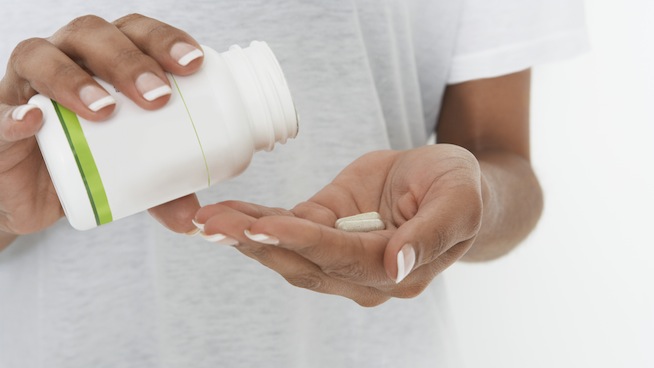
The more you train, the more stress you put on your joints. Glucosamine/chondroitin/MSM joint complex keeps your joints lubricated, improves healing capabilities and suppresses inflammation from training and aging. Shoot for 2,000 mg (2 grams) of glucosamine per day.
RELATED: 4 Muscle-Building Supplements That Don’t Work
References
Braham, R., Dawson, B., and Goodman, C. (2003). “The effect of glucosamine supplementation on people experiencing regular knee pain.” British Journal of Sports Medicine, 37(1). Retrieved from doi:10.1136/bjsm.37.1.45 on January 5, 2015.
Noreen et al (2010). “Effects of supplemental fish oil on resting metabolic rate, body composition, and salivary cortisol in healthy adults.” Journal of the International Society of Sports Nutrition, 7(31). Retrieved from doi:10.1186/1550-2783-7-31 on December 30, 2014.
Mattson, M (2002). Diet-brain connections: Impact on memory, mood, aging, and disease. Boston: Kluwer Academic.
Buford et al (2007). “International Society of Sports Nutrition position stand: creatine supplementation and exercise.” Journal of the International Society of Sports Nutrition, 4(6) Retrieved from doi:10.1186/1550-2783-4-6 on December 30, 2014.
Yang et al (2010). “Combination therapy with coenzyme Q10 and creatine produces additive neuroprotective effects in models of Parkinson’s and Huntington’s diseases.” Journal of Neurochemistry. 109(5). Retrieved from doi: 10.1111/j.1471-4159.2009.06074.x on December 30, 2014.
Sousa et al (2012). “Dietary whey protein lessens several risk factors for metabolic disease: a review.” Lipids in Health and Disease, 11(67). Retrieved from http://www.ncbi.nlm.nih.gov/pmc/articles/PMC3393628/pdf/1476-511X-11-67.pdf on December 30, 2014.
[cf]skyword_tracking_tag[/cf]RECOMMENDED FOR YOU
MOST POPULAR
The 5 Essential Sports Supplements
![]()
As a physique contest prep coach and personal trainer, I get asked all the time, “What sports supplements should I take?” If I know nothing about you or your goals, I can’t answer the question. But I can say with certainty there are a few supplements that every athlete should consider, because they work. Check out the video above to learn how to incorporate supplements into your diet.
1. Multivitamin

How many people can you name who eat such a diverse diet that they cover the entire color spectrum with their vegetables? I’ll be the first to admit that I don’t. It is incredibly difficult to obtain all the necessary micronutrients through eating alone. I recommend taking a multivitamin, even if you think you don’t need one, to make sure you’re covering all your bases.
RELATED: Maximize Your Athletic Performance With Multivitamins
2. Fish Oils

Fish oil can increase fat burning, reduce markers of inflammation, decrease cortisol levels (stress hormone) and improve body composition. In a study published in the Journal of the International Society of Sports Nutrition, researchers found that subjects who supplemented with fish oil reduced their body fat and increased lean mass. The researchers posited that fish oil suppressed fat-promoting genes and increased lean tissue by blocking the catabolic effects of cortisol. Subjects supplemented with 4 grams of fish oil per day for at total of 1,600 mg of EPA and 800 mg of DHA. Unless you consume fatty fish at least twice a week, it’s a good idea to supplement with 2 to 4 grams per day in divided doses.
3. Creatine Monohydrate

Creatine monohydrate has been on the market for decades because it works. You don’t need to spend $50 or more on creatine HCL or other buffered forms, because they won’t do a better job than the $10 monohydrate, which still does the trick.
Learn more creatine myths.
Dosing protocol for creatine monohydrate has two variations. You can take a loading dose of 0.3 grams/kg/day for three days followed by a 3 gram/day maintenance dose for four weeks on followed by four weeks off. Or you can take 3-5 grams with your post-workout shake only on workout days without taking off periods.
4. Whey Protein

Whey is the living legend of proteins. It is incredibly-fast digesting, which is exactly what your body needs after a workout because of your muscles’ heightened insulin sensitivity after exercise. It is also an incredibly bioavailable protein, meaning that your body can use it quickly and easily. Whey protein helps you maintain muscle mass, improves blood glucose levels, lowers hypertension and helps you feel fuller. Endurance athletes should shoot for 1-1.6 grams/kg of body weight. Strength and power athletes should consume 1.6-2.0 grams/kg.
5. Joint Complex

The more you train, the more stress you put on your joints. Glucosamine/chondroitin/MSM joint complex keeps your joints lubricated, improves healing capabilities and suppresses inflammation from training and aging. Shoot for 2,000 mg (2 grams) of glucosamine per day.
RELATED: 4 Muscle-Building Supplements That Don’t Work
References
Braham, R., Dawson, B., and Goodman, C. (2003). “The effect of glucosamine supplementation on people experiencing regular knee pain.” British Journal of Sports Medicine, 37(1). Retrieved from doi:10.1136/bjsm.37.1.45 on January 5, 2015.
Noreen et al (2010). “Effects of supplemental fish oil on resting metabolic rate, body composition, and salivary cortisol in healthy adults.” Journal of the International Society of Sports Nutrition, 7(31). Retrieved from doi:10.1186/1550-2783-7-31 on December 30, 2014.
Mattson, M (2002). Diet-brain connections: Impact on memory, mood, aging, and disease. Boston: Kluwer Academic.
Buford et al (2007). “International Society of Sports Nutrition position stand: creatine supplementation and exercise.” Journal of the International Society of Sports Nutrition, 4(6) Retrieved from doi:10.1186/1550-2783-4-6 on December 30, 2014.
Yang et al (2010). “Combination therapy with coenzyme Q10 and creatine produces additive neuroprotective effects in models of Parkinson’s and Huntington’s diseases.” Journal of Neurochemistry. 109(5). Retrieved from doi: 10.1111/j.1471-4159.2009.06074.x on December 30, 2014.
Sousa et al (2012). “Dietary whey protein lessens several risk factors for metabolic disease: a review.” Lipids in Health and Disease, 11(67). Retrieved from http://www.ncbi.nlm.nih.gov/pmc/articles/PMC3393628/pdf/1476-511X-11-67.pdf on December 30, 2014.
[cf]skyword_tracking_tag[/cf]










